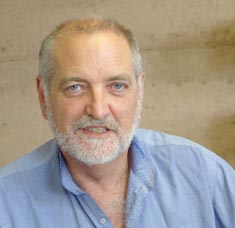 A
Charles Sturt University (CSU) wetlands expert believes irrigators,
environmentalists and water resource managers should concentrate on what is
known about using fresh water and water requirements, rather than rhetoric and
political posturing.
A
Charles Sturt University (CSU) wetlands expert believes irrigators,
environmentalists and water resource managers should concentrate on what is
known about using fresh water and water requirements, rather than rhetoric and
political posturing.
Professor Max Finlayson, director of the University's Institute for Land, Water and Society (ILWS), will address this issue at the 2014 Irrigation Australia Conference, which starts on the Gold Coast on Monday 2 June.
"I believe organisations like Irrigation Australia should seize every opportunity to gather various interest groups – industry groups, government agencies and communities – to discuss the complex issues involved in planning water use in the Murray Darling Basin and other major water catchments across Australia," Professor Finlayson said.
"And the communities who are affected by the water resources should manage these discussions, inviting individuals and groups to listen and find common ground rather than concentrating on the differences between interest groups - that gets us nowhere, we just go around in circles."
Professor Finlayson will discuss these issues in a keynote address to be delivered to conference delegates on Tuesday morning 3 June.
"Information is an important part of these discussions. Irrigators and others involved with our valuable water resources have many questions but we do not always have the same information or see the same responses," he said.
"Our water systems are interconnected, but we may not have been treating them that way. At the same time our social and institutional systems have been riven by division and uncertainty. Can we bring these together and introduce more certainty and confidence into our own lives and those of our communities?
"We also want to identify those areas where further, more difficult dialogue is needed. We know what we will argue against. Can we go beyond the arguments and see a water future for our many and varied water users and the environment that supplies the water?"
"Some questions that we need to answer are:
- Do we understand the environmental needs for water in Australian river systems?
- How are we setting sustainable environmental goals and ensuring efficient water use?
- Do we need more dams, or can we operate existing dams more efficiently?
- How does better weather forecasting assist with efficient water use?
- What are the opportunities for on-farm rainfall runoff and capture water on the floodplains in times of plenty, or for recharging groundwater aquifers?
- How is the Murray Darling Basin Plan going? What have we learnt?
- What are the socio-economic costs of reduced irrigation production, or from changes in irrigation practices?
- What are the socio-economic and cultural benefits of environmental flows?
- Where does coal seam gas fit into the water equation?
- Where will the cities get their water as they keep growing?
- What has happened to salinity and algal blooms?
- And most importantly, how are we going to answer these questions and get the answers into the public arena?"
"CSU researchers are continuing to work on these questions with government and community-based groups. Getting the answers will take some time and require cooperation and discussion between many groups and individuals," Professor Finlayson said.
"We have been a part of this process for a long time and continue to explore opportunities to work with water users, managers and the wider community."
See information on research into sustainable water research with CSU's ILWS here.




Social
Explore the world of social